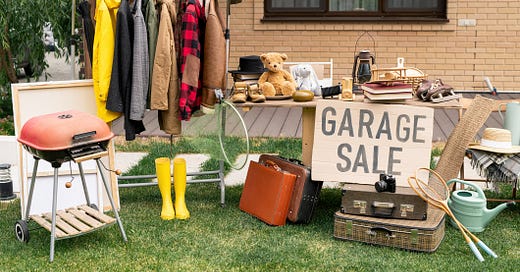Every two weeks or so I am publishing an essay from an emerging writer. This week, “Beats All: Mortality, Salvage, and Queerness” by Emma Wilcox. Emma is an artist and writer. As a photographer working with view camera and helicopter, she is concerned with environmental justice, land usage, eminent domain, and the role of individual memory in the creati…
© 2025 Roxane Gay
Substack is the home for great culture




